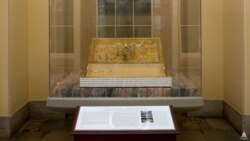The most important document in British history celebrates its 800th birthday this month, one being marked in our nation too for providing a foundation for our government and liberties. In a meadow by the Thames River near London on June 15, in the year 1215, the English King John sued for peace with a group of rebellious nobles by attaching his royal seal to a “Great Charter of Liberties,” better known by its title in Latin, the Magna Carta.
By most accounts, John was a horrible monarch. He imposed heavy taxes, far higher than those of kings before him. When someone couldn’t pay, he took their sons hostage. Those suspected of disloyalty were executed without trial. For interfering with affairs of the church, he was excommunicated.
Powerless in the face of open rebellion and anxious to save his throne, John conceded to a list of 63 grievances, and promised from then on to “obey the law of the land.” Future kings would be bound by the charter as well, he pledged.
Many of its provisions are irrelevant today, dealing as they do with such things as feudal laws regarding rents and inheritance. But with its implication that the head of state is subject to the rule of law and the declaration that all people have a right to a fair trial if accused of a crime, the Magna Carta has become a symbol of liberty, individual freedoms and the rule of law around the world.
Some four centuries later, when English colonists left for the New World, they brought royal charters that established their colonies, each couched with the guarantees of rights and liberties implied by the Magna Carta. And later, when the colonists fought for independence from Britain, they were fighting not so much for rights unknown, but to preserve those rights and liberties now laid out in our Constitution.
Magna Carta still forms an important symbol of liberty today. It is the foundation of freedom of the individual against arbitrary authority and the notion that no one, not even a king, is above the law.






